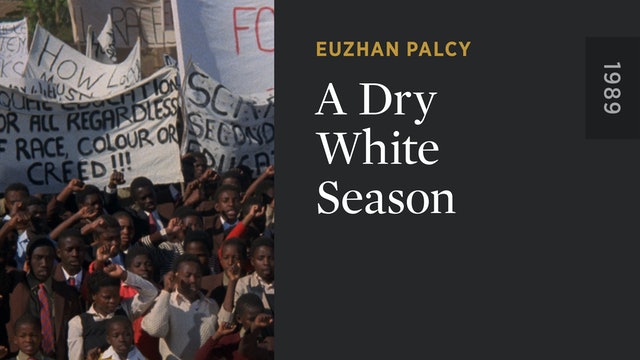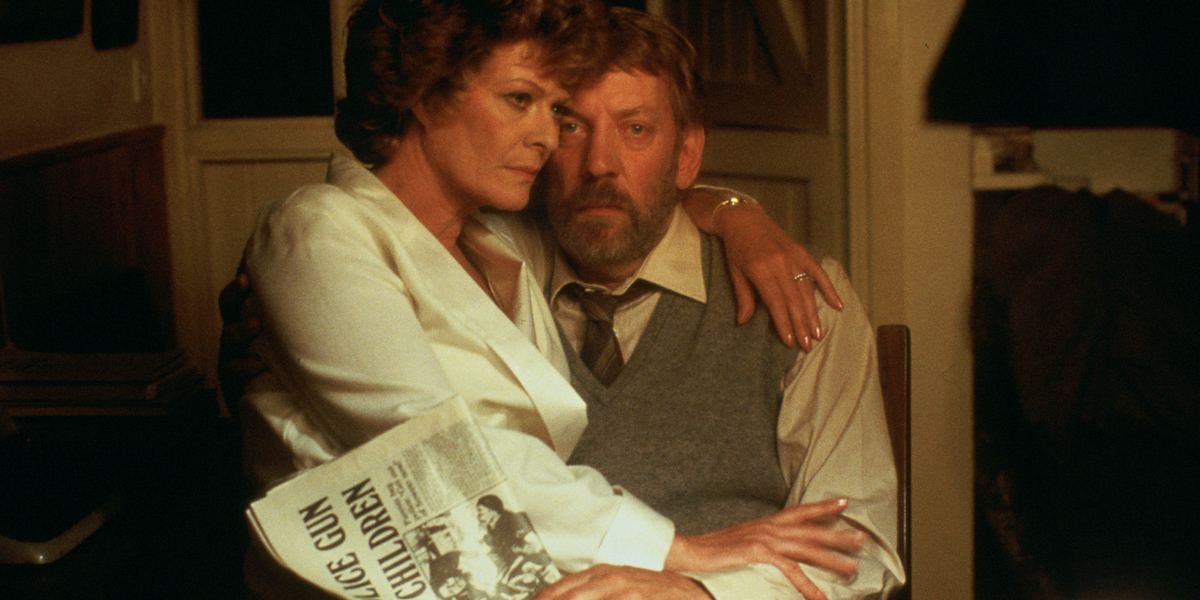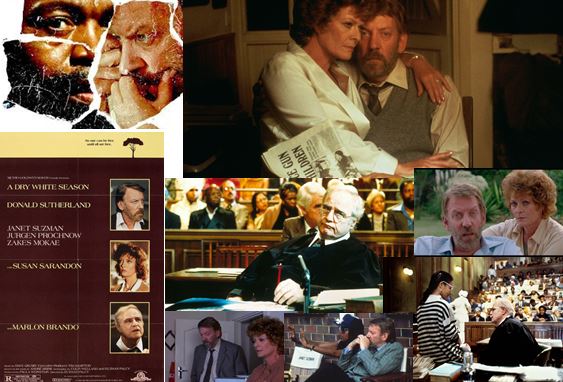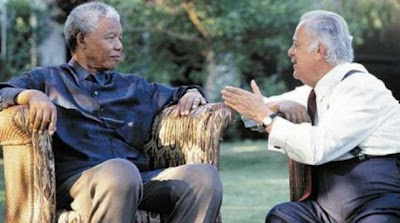If everyone could see this quite remarkably moving Channel 5 documentary made by Nick Stadlen entitled 'Life is wonderful:Mandela's unsung heroes', it would bring home the enormity of the life lived by the very great George Bizos. Such tumultuous and cruel events were playing out in the land of my birth, South Africa, leading to the eventual euphoric release of, probably, one of the finest human beings of the twentieth century.
George Bizos was a figure who I salute as someone who lived a just and useful life, a great life serving others, his loathing of injustice feeding his very considerable energies to the end. He has always figured high on my list of those who I respect and admire from the bottom of my heart. There is an irony in my life that the nearest I ever got to him was his substitute in a film I made many years ago, A Dry White Season, in which he was played by Marlon Brando - another giant in his chosen field.
Those three words - "if needs be” - which George advised Nelson Mandela to insert into his famous speech at the Treason Trial, changed the outcome of history. If only George could have made the case for the Marbles return from inside a courtroom, the two sides of his life would have been perfectly joined. The small imperfection that remains must spur us all on to direct our energies towards the common goal George and all of us have to see one of his dreams realised.
George Bizos rest in peace.
Janet



George Bizos was a member of the BCRPM and a friend of Eleni Cubitt. He passed away on Wednesday 09 September 2020 in his home in Johannesburg South Africa, aged 92. Born on the 14th of November 1927 ( exact date was never known because municipal records were burned during the Nazi occupation of Greece), Gorge wrote in his autobiography that his mother, Anastasia Tomaras, recalled it as November the 14 th.
George at the age of 13 with his father Antonios, in May 1941 helped New Zealand soldiers to flee the Nazis on a fishing boat, which was rescued by a British warship, the H.M.S. Kimberley. They were taken to Egypt and from there George and his father sailed to South Africa. They arrived as refugees and at a time of racial oppression and pro-Nazi sentiment among some Afrikaners. The train taking them from Durban was diverted to a station in Johannesburg, where George stayed with a Greek family. He struggled to learn Afrikaans and English through school and went onto the University of the Witwatersrand in Johannesburg to obtain his law degree in 1950 and by 1954 was admitted to the Johannesburg bar.
George and Oliver Tambo lead the A.N.C. representing clients in rural places, victims of apartheid. And so George came to be one of the lawyers representing Nelson Mandela.
Apartheid, a policy of racial discrimination and segregation, was used in South Africa from 1948 to 1994. It was destructive and inhuman as the laws decreed where people could live and be buried; which schools they could attend and what they might learn. Buses were segregated by race, and so were park benches, railroad stations, beaches and shops.
“In South Africa the courtroom was the last forum available to condemn oppressive policies and the deprivation of fundamental rights” George wrote. Only in court, he said, could one demand for all South Africans the rights “to meaningful citizenship, free and fair elections, dignity, equality and a fair distribution of goods and honours in a democratic state.”
